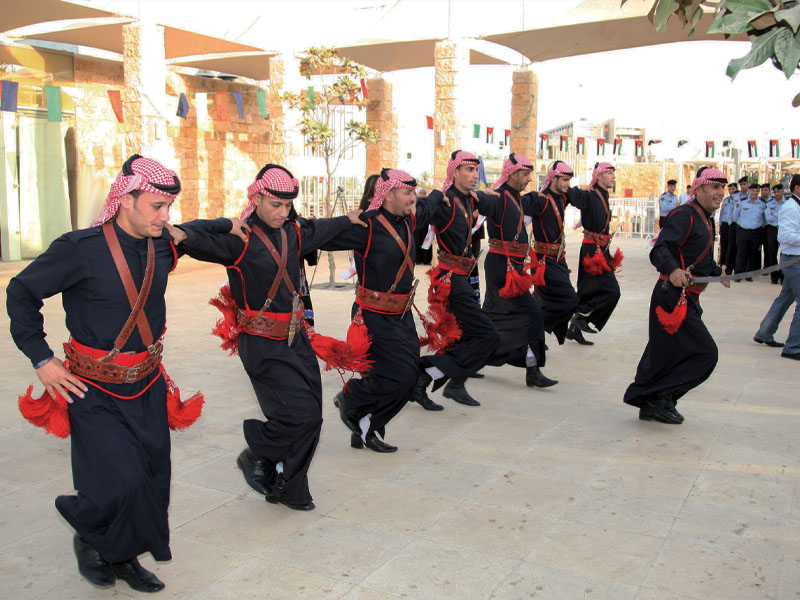The Jordanian Bedouin wedding: An introduction to reading signs and symbols
Issue 26

Marriage is regarded as one of the most important social rituals in human societies due to its role in organising relationships within communities and perpetuating these communities. This ritual reveals how a society thinks, and reflects its inherited customs, attitudes and cultural traditions. It also reflects the society’s perspectives on social interaction, existential concepts and world-views.

Marriage rituals and traditions differ from one society to another due to cultural differences. Within Jordanian society, there are common marriage traditions, but we find similarities extend to general practices and traditions, but not to the details.
With all its classes and cultural and religious differences, Jordanian society is committed to marriage as a social system. Jordanian Bedouin marriage rituals have remained faithful to inherited traditions for many generations.
The Bedouin tribes stick to these traditions to show their loyalty and to preserve their authenticity. Such traditions preserve the social fabric, because the tribe is a cohesive social structure with members that show absolute loyalty and allegiance.
The Bedouin wedding is a cultural activity that is rich in signs and symbols, which represent cultural values and customs that make up a distinctive identity. With this in mind, the aim of Bedouin weddings is to establish a new family but also to preserve tribal unity and the extended family that protects its members, safeguards their interests and defends their goals and aspirations.
The Bedouin wedding is a result of a traditional pragmatic attitude that views marriage as part of a system of values and that recognises marriage as a legal bond between a man and a woman that is accepted and encouraged by society.
The way Bedouins organise weddings serves as an indicator of the values that Bedouins hold dear and seek to preserve, such as increasing the number of tribal members, which adds to the tribe’s strength, influence and economic affluence.
The various stages of Bedouin weddings reflect how much the Bedouins value formality and traditions that signify prestige and power. The Bedouins’ cultural and social system shows their respect for social standing and rank.
Rituals and celebrations signify how important happiness and pleasure are to Bedouins; weddings are an opportunity for Bedouins to display their love for life. That is why the celebrations that take place during weddings can seem like carnivals in which all the tribe’s men, women and children participate.
Haytham Sarhan
Jordanie







































































